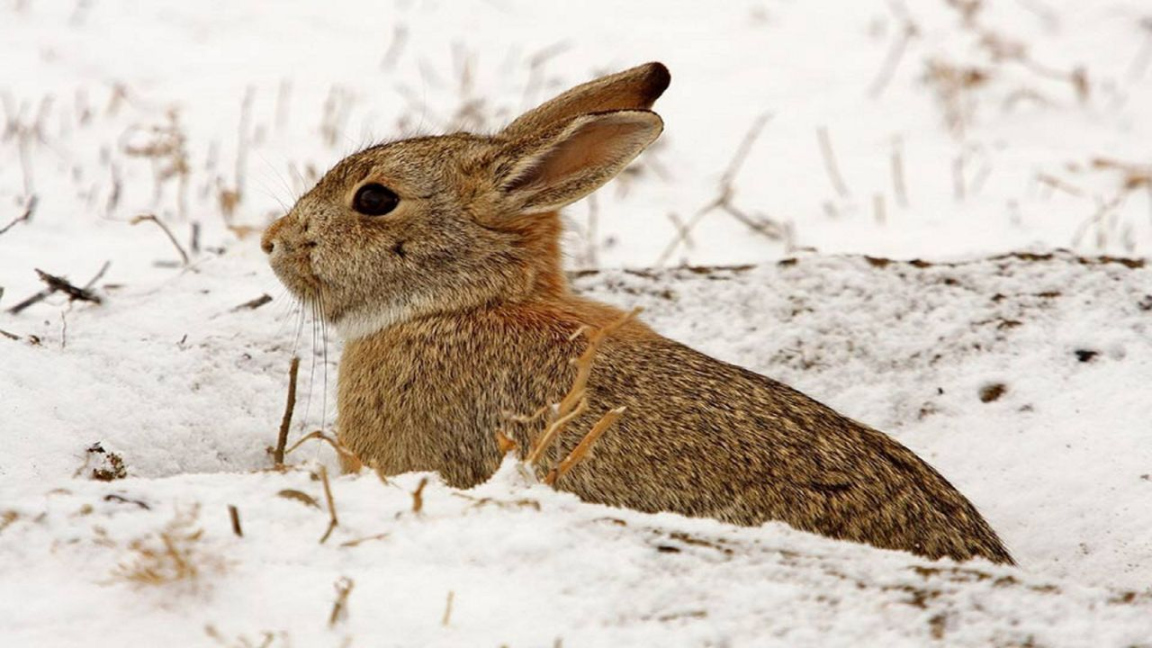Can Rabbits Live Outside In Winter?
Many rabbit owners wonder if their furry friends can endure the harsh winter weather and if it is safe to keep them outside during this time. While rabbits are known for their resilience and ability to adapt to different environments, winter can pose significant challenges to their well-being. In this article, we will explore whether rabbits can live outside in winter and providae essential tips to ensure their comfort and safety during the colder months.

Understanding Rabbit Physiology
Rabbits have a unique physiology that allows them to cope with various weather conditions. They naturally have thick fur coats that act as insulation, providing warmth during colder temperatures. Additionally, rabbits have the ability to regulate their body temperature through their ears, which are highly vascularized and can dissipate heat effectively. However, despite these adaptations, rabbits still have their limits when it comes to extreme cold.
The Ideal Rabbit Housing
Providing suitable housing for your rabbit is crucial, especially during winter. Here are some key considerations:
- Insulation: Ensure that the rabbit hutch or enclosure is well-insulated. Use materials such as straw, hay, or blankets to line the hutch and provide extra warmth.
- Size: The hutch should be spacious enough for the rabbit to move around comfortably, but not too large that it becomes difficult to retain heat.
- Ventilation: While insulation is important, proper ventilation is also necessary to prevent the buildup of moisture and ammonia from urine. Ensure that the hutch has adequate airflow without creating drafts.
- Elevation: Elevate the hutch off the ground to prevent cold air from seeping in from the bottom.
- Shelter: Provide an additional shelter within the hutch where your rabbit can seek refuge from extreme cold or wind. This can be in the form of a hide box or a smaller enclosed space.
Winter Diet and Hydration
During winter, it is vital to pay extra attention to your rabbit’s diet and hydration. Here are some important factors to consider:
- Hay: Increase the amount of hay in your rabbit’s diet, as it provides essential nutrients and helps generate heat during digestion. Make sure the hay is fresh and of good quality.
- Water: Ensure that your rabbit has access to fresh, unfrozen water at all times. Consider using water bottle heaters or insulated bowls to prevent freezing.
- Vegetables: Continue providing a varied diet of fresh vegetables to ensure your rabbit receives the necessary vitamins and minerals.
Monitoring Your Rabbit’s Health
Regularly monitoring your rabbit’s health is crucial during winter. Here are some signs to watch out for:
- Decreased activity: If your rabbit is unusually lethargic or spends more time huddled up, it may be a sign of discomfort due to the cold.
- Loss of appetite: A decreased appetite can indicate that your rabbit is not feeling well or is unable to cope with the cold.
- Symptoms of hypothermia: Watch for shivering, rapid breathing, or a drop in body temperature. If you suspect hypothermia, seek immediate veterinary attention.
- Frostbite: Check your rabbit’s extremities, such as ears and paws, for signs of frostbite. If you notice any discoloration or swelling, consult your veterinarian.
Frequently Asked Questions (FAQs)
1. Can all rabbit breeds survive outside in winter?
While some rabbit breeds are better equipped to handle colder temperatures, it is not advisable to leave any rabbit breed outside during winter without proper preparation and care.
2. How can I keep my outdoor rabbit warm during winter?
To keep your outdoor rabbit warm during winter, ensure that their hutch is well-insulated, provide extra bedding, and offer additional shelter options within the enclosure. Monitor their health closely and make adjustments as necessary.
3. Are there any additional precautions I should take for older rabbits in winter?
Older rabbits may have a harder time regulating their body temperature, so it is important to take extra precautions. Make sure their hutch is well-insulated and provide additional bedding and warmth options. Regular veterinary check-ups are also recommended.
4. Should I bring my rabbit indoors during winter?
If the weather conditions are extremely cold or your rabbit is showing signs of discomfort, it may be best to bring them indoors temporarily. However, ensure that the indoor environment is rabbit-proofed and safe for them to roam and exercise.
By taking the necessary precautions and providing appropriate care, rabbits can indeed live outside in winter. However, it is essential to closely monitor their well-being and make adjustments as needed to ensure their comfort and health throughout the colder months.
Related Articles…
Copyright Notice:
Images displayed on this website are not our property, but are procured from the internet. If you hold copyrights to any image and wish for its removal, please get in touch with us.